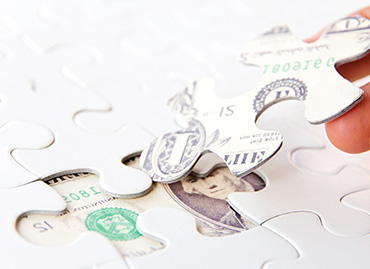
Embarking on the journey of personal finance with a bad credit score can indeed feel like setting sail into stormy seas. The turbulent waters of high interest rates, loan rejections, and limited financial opportunities can make navigating towards your financial goals a daunting challenge. Yet, with the right strategies and a compass of perseverance, it's possible to steer through these rough waters and into calmer seas of good credit and financial stability. Let's explore the impact of bad credit and chart a course for recovery and rebuilding.
Having a bad credit score can have far-reaching consequences that permeate various aspects of your financial life. Firstly, loan and credit card rejections become a common occurrence as lenders and credit card issuers may view you as a high-risk borrower. Even when approved, loans and credit cards often come with significantly higher interest rates, increasing the cost of borrowing and further burdening your financial situation. Additionally, bad credit can make renting a home difficult as landlords may be hesitant to lease to tenants with poor credit histories. Similarly, buying a home can become a distant dream with unfavorable mortgage terms or outright denial. Moreover, some employers check credit reports as part of the hiring process, particularly for positions that involve financial responsibilities. Lastly, utility companies, cell phone providers, and landlords may require higher deposits to offset the perceived risk of late or missed payments, adding another layer of financial strain.


However, the journey to recover and rebuild your credit score is not a swift voyage; it requires dedication and the right tactics. Firstly, assess the damage by obtaining your credit report from all three major credit reporting agencies and scrutinize it for errors. Dispute any inaccuracies that could be dragging your score down. Next, prioritize bringing any past-due accounts current as late payments have a significant negative impact on your credit score. Work towards paying down credit card balances to reduce credit utilization, aiming to keep it below 30%. Consider obtaining a secured credit card if traditional credit cards are out of reach, and use it responsibly to build a positive payment history. Explore credit builder loans, designed to help individuals build credit, by making timely payments on borrowed funds held in an account. Keep older accounts open to maintain the length of your credit history, even if you're not using them frequently.
"Recovering from bad credit is akin to righting a ship after a storm—it takes time, effort, and patience. By consistently applying these strategies, you're not just repairing a number; you're rebuilding the foundation of your financial life." - Anonymous
Recovering from bad credit is akin to righting a ship after a storm—it takes time, effort, and patience. By consistently applying these strategies, you're not just repairing a number; you're rebuilding the foundation of your financial life. The journey may be long, and the seas may sometimes be rough, but with persistence, the winds will shift in your favor, guiding you towards the horizon of good credit and broader financial opportunities. Remember, every step you take towards improving your credit is a step towards realizing your financial dreams and goals.